Welcome Home Statement
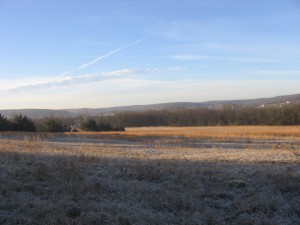 A growing number of people are recognizing that in order to secure the clean air, water and food that we need to healthfully survive, we have to become guardians of the places where we live. People sense the loss in not knowing our neighbors and natural surroundings, and are discovering that the best way to take care of ourselves and to get to know our neighbors is to protect and restore our region.
A growing number of people are recognizing that in order to secure the clean air, water and food that we need to healthfully survive, we have to become guardians of the places where we live. People sense the loss in not knowing our neighbors and natural surroundings, and are discovering that the best way to take care of ourselves and to get to know our neighbors is to protect and restore our region.
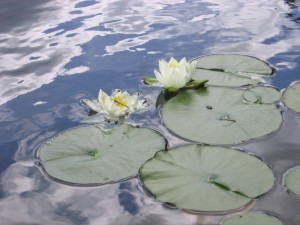
Bioregionalism recognizes, nurtures, sustains and celebrates our local connections with: Land, Plants and Animals, Springs, Rivers, Lakes, Groundwater & Oceans, Air, Families, Friends, Neighbors, Community, Native Traditions and Indigenous Systems of Production & Trade.
It is taking the time to learn the possibilities of place. It is a mindfulness of local environment, history, and community aspirations that leads to a sustainable future. It relies on safe and renewable sources of food and energy. It ensures employment by supplying a rich diversity of services within the community, by recycling our resources, and by exchanging prudent surpluses with other regions. Bioregionalism is working to satisfy basic needs locally, such as education, health care and self-governance.
The bioregional perspective recreates a widely-shared sense of regional identity founded upon a renewed critical awareness of and respect for the integrity of our ecological communities. People are joining with neighbors to discuss ways we can work together to:
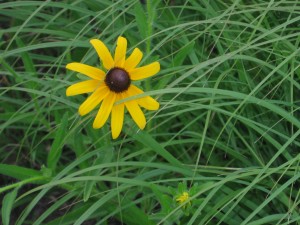
1. Learn what our special local resources are
2. Plan how to best protect and use those natural and cultural resources
3. Exchange our time and energy to best meet our daily and long-term needs
4. Enrich our children’s local and planetary knowledge
Security begins by acting responsibly at home.
Welcome home!
This statement was adopted by the first North American Bioregional Congress (NABC) in 1984 and reaffirmed at NABC II and III, and subsequently at all other congresses.
An Invitation to the Continental Bioregional Congress
by Stephanie Mills in concert with a group of bioregional writers from throughout the continent: Caryn Mirriam-Goldberg, Gene Marshall, Joyce Marshall, David Haenke, Chris Lowry and David Levine
Across the planet, people recognize that we must become guardians of our life-places. Human beings  have long understood that security is found in acting responsibly at home – in our neighborhoods and watersheds, our bioregions.
have long understood that security is found in acting responsibly at home – in our neighborhoods and watersheds, our bioregions.
Bioregions are living systems where every being is connected to, and interdependent with every other; bioregions are not by property lines, states, or nations, but by rock, soil, weather, water, terrain, plants, animals, human cultures and human settlements.
Bioregionalism calls for active citizenship in the whole of life, yet its key understanding is cultural: attention to place, to local history, natural history, and to how a community’s hopes, wounds, and dreams can inform enduring ways of life that will heal the planet’s bioregions and their inhabitants.
Bioregionalism cultivates learning the natural history of all our relations in order to craft diverse human societies respectful of place and planet.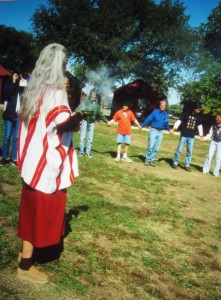
Bioregionalism means working to satisfy basic needs locally, relying on renewable energy and sustainable agriculture, developing local enterprises based on local skills and strengths.
Bioregionalism challenges and is an alternative to nationalism, corporate rule, and top-down globalization of our lives.
Bioregionalism embraces the struggle around the world to preserve, restore and enhance the life of the distinct places that constitute the planet.
Since 1984 bioregionalists have been gathering semi-annually at camps throughout continental North America. You, too, may be a bioregionalist, in fact probably are, if you’ve received this invitation. Continental bioregional gatherings are meetings of peers and kindred spirits, open to all ecology-minded persons that offer unparalleled opportunities to envision and develop a realistic, restorative way of life in your bioregion. We set their own agendas, operate by consensus and build a common commitment. Grand times and good friendships are only the first fruits. At bioregional 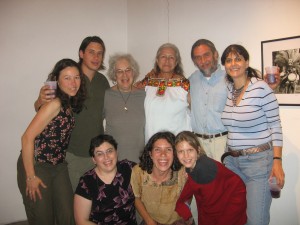 congresses, we live in community, concern ourselves with the things that matter, and return home informed and inspired. We also spend time talking in depth, sharing technical knowledge and processes, in areas related to community and ecological restoration: water, forestry, health, education, prairie management, the arts, energy, etc. We earnestly invite the participation of all, especially those involved in the work necessary for the human species to reinhabit the bioregions of the Americas and of the whole Earth.
congresses, we live in community, concern ourselves with the things that matter, and return home informed and inspired. We also spend time talking in depth, sharing technical knowledge and processes, in areas related to community and ecological restoration: water, forestry, health, education, prairie management, the arts, energy, etc. We earnestly invite the participation of all, especially those involved in the work necessary for the human species to reinhabit the bioregions of the Americas and of the whole Earth.
The survival of humanity and of the planet’s bioregions depends on our advocacy of ecological design in all branches of human endeavors: economics and auditing, technology, agriculture and forestry; planning and industry; education, culture and art; philosophy, psychology, and metaphysics; law and justice; healthy and environmental defense; politics and land tenure. Any and all activists and practitioners in these fields are strongly urged to attend, to share their passions, lore, successes and learning experiences; to find new friends, mentors, or fellow travelers while participating in plenary discussions and spontaneous conversations.
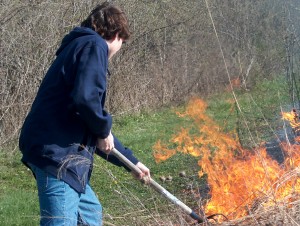 If we are to avoid ecological and social collapse or global monoculture, we need to begin to listen to the planet, to learn our places. Home is the ground for honest hope. Only in our life-places can begin anew, in the timeless way of Earth’s ecologies.
If we are to avoid ecological and social collapse or global monoculture, we need to begin to listen to the planet, to learn our places. Home is the ground for honest hope. Only in our life-places can begin anew, in the timeless way of Earth’s ecologies.
Stephanie Mills is a long-time bioregional author whose articles have appeared in Whole Earth Review and many other publications. Her books include Whatever Happened to Ecology, In Praise of Nature, and Epicurian Simplicity. She has been active in the bioregional movement for over twenty years.